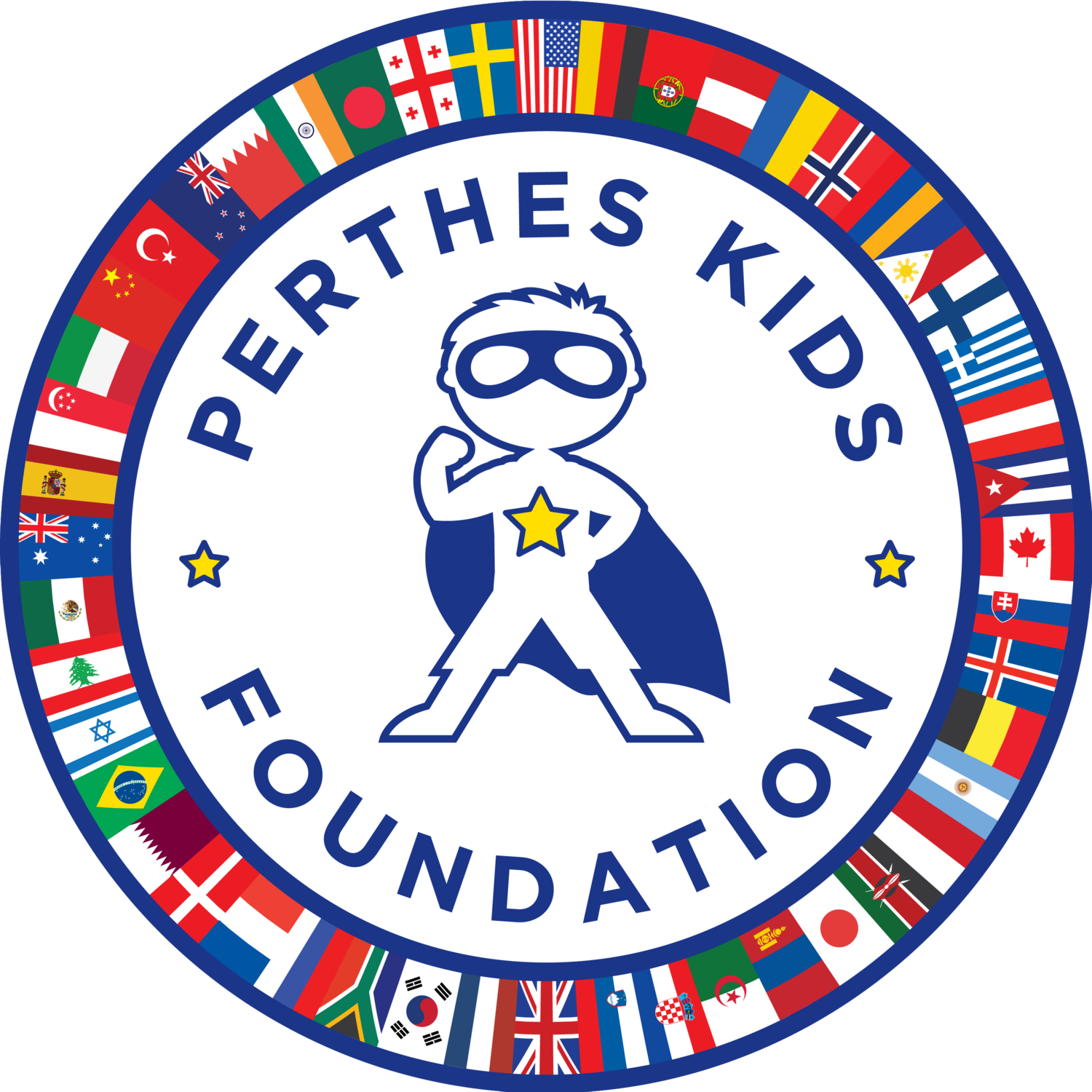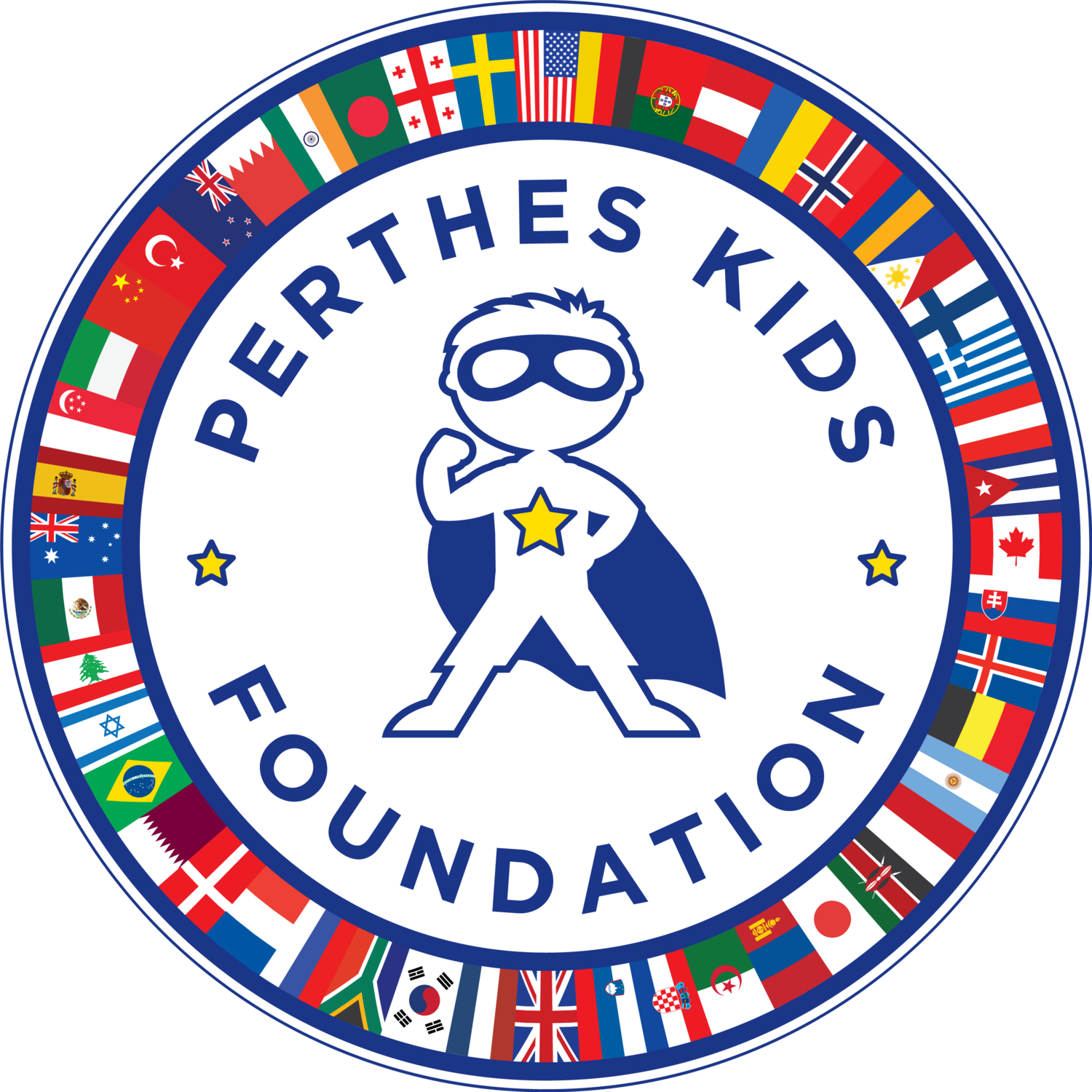Perthes: Mental & Emotional Health
A child's Perthes journey can be quite challenging, both physically and mentally. In addition to the various physical treatments with crutches, braces, surgery, wheelchairs, etc., it is equally important that we take care of and nurture a child's emotional and mental state, as they go through this journey.
Yes, there will be some very tough days, but below are a few tips that can help with maintaining a strong, healthy and happy state of mind for your child. Perthes Kids Foundation is currently working on a psychological study that will go into more depth with the mental and emotional aspects of Perthes, and how it not only affects the child, but also the entire family.
The Feelings Wheel, developed by Dr. Gloria Wilcox
LORI KENNEDY, Professional Child Therapist, Perthes Mom, Camp Perthes Counselor and Perthes Kids Foundation Advisory Board Member
YOUR CHILD & MENTAL HEALTH
Lori Kennedy, a children’s therapist in Frisco, TX, is the host of Mental Health Mondays, which is a bi-monthly, Q&A session that takes place within the Perthes Kids Foundation’s support group on facebook. Lori donates her time to help advise parents with children diagnosed with Legg-Calvé-Perthes disease. MHM is available to any member of the PKF facebook group, but highlights of the session will also be available on the PKF website.
Lori is a Licensed Professional Counselor (LPC), a National Certified Counselor (NCC), a Registered Play Therapist (RPT) and has a Masters Degree in Clinical Mental Health from the #1 Play Therapy University in the world. She has presented to local, regional, national and international audiences on various subjects focusing on supporting children’s mental and emotional health through counseling, play therapy and expressive arts.
“But my MOST IMPORTANT credential is that I am the Mom of a 12 year old boy with Perthes. My son Matthew was diagnosed at six years old, right after kindergarten, and he is now a thriving middle school pre-teen. So to say ‘I get it’ is an understatement. I am not just another professional with an opinion. I am a Perthes Parent, walking this journey by your side.” — Lori Kennedy, MS, LPC
emotional connection
There are so many buzzwords flying around us these days including things about mental illness, anxiety, depression, suicide... It is easy to get caught up in the headlines. But where I want us to start, is with the basics. As we work together as a community of support, we will build on our knowledge and strength.
Here is what I want you to know. When we are talking about kids and teens, we have to learn to connect before we can ever hope to heal. Children and teens are not able to connect in the same way adults do, so we need to learn their language. Children under the age of 8 communicate, explore and express through play. Children under the age of 12 communicate emotions primarily through behavior. And teenagers hit the whole continuum with a full blast of 10 on the 1-10 scale of extreme (and often misguided) expression!
Let’s learn the skill of Reflection of Feeling and talk about how to understand what our children are telling us. You have to be able to correctly understand the emotions you are seeing before you can know what to do with them.
reflection & honesty
Sad is one of hardest emotions for us to tolerate in our kids. Nothing will make a parent flip into rescue mode faster than authentic tears. With reflection, you are allowing their expression. It will take the intensity and power away from the emotion for them because they are expressing as a bid for connection. Try some of these responses next time.
As Perthes parents, it is SO IMPORTANT for us to express our full range of emotions for our kids. If he is sad, you are probably sad too. This is called normalizing. If they see you all happy faced and strong with all of this hard stuff, then they are going to be confused why they feel the hard stuff. BE HONEST. That is not weakness my friends. That is strength, and it is healthy for all of you. Cry together, celebrate together, be mad together.
Show Empathy through Therapeutic Intervention & the Parenting skill of Reflection of Feeling:
Gains insight into child’s emotional responses
Validates child’s emotional experience
Teaches a child an emotional vocabulary
Focuses on the need expressed, not the behavior
Decreases the need for escalation
Increases connection
Reduces anxiety in parent and child
PERTHES & ANXIETY
We all know what anxiety feels like. It does not require a mental health diagnosis to experience this emotion. It is a common, universal human experience. Let's talk about what it is, how you or your child is struggling with it and ways to help.
Anxiety is inner turmoil characterized by excessive worry and presents as both physical and emotional responses to a perceived or real threat. You can have very real physical symptoms such as rapid heart beat, stomach aches, racing and repetitive or intrusive thoughts, crying, excessive worry, sleeplessness, and high blood pressure. All of these things are not tied to medical problems, but emotional responses. And they are very real.
Perthes absolutely amplifies anxiety, or causes it, if it was not there to begin with. Think about how much pressure is put on a child with perthes to self manage activity in order to keep themselves safe and out of pain. That is a tremendous burden on a child. Think about how is effects US as PARENTS, then multiply for a child. Remember - real or perceived threat. The activity can be both, but so is the fear of being left out or different, and the sadness that comes with that. And, cue anxiety overload!
HOW CAN axiety AFFECT YOU PHYSICALLY?
Anxiety produces cortisol in the body and physical activity burns off cortisol. Kids on activity restriction have a hard time accomplishing this, so be creative and come up with ways to move their bodies, even if it's upper body activity, to help get rid of the hormone build up and let the body relax.
Anxiety is also very heavily genetically linked. I almost never get a client with anxiety who doesn't have at least one anxious parent. But remember this - we did not ask for it and we did not give it to our children on purpose. Sometimes it is genetics, sometimes environment or trauma (re: perthes) and sometimes a combination. You can't cure anxiety, you just learn how to recognize and control it. Be KIND to yourselves. This is not an easy thing to navigate. And the more you worry, the more anxious you will be.
You have to practice self care. And dealing with your own anxiety is a really important thing to pay attention to. We will feed off of them and they will feed off of us. Anxiety is a very contagious emotion.
coping skills that combat anxiety
A mind engaged in creative play or focused on something can not worry all the time. Think of distraction techniques…music, art, sensory activities, being out in nature, free play, holding a pet, reading a book - all of these things give anxious minds a break. Some kids really respond to sensory seeking as an anti anxiety thing - try kinetic sand, stress balls, water beads, mad matter, weighted blankets, sequin pillows - all of these are tactile, visual and some are even auditory self soothers. These can really help. Busy hands combat busy minds. Sometimes playing in the sand for 15-30 minutes a few times a week can work wonders.
One universal skill to combat anxiety is deep breathing. This is actually a neurobiological process that will change brain function and heart rate. Here's how it works…inhale through your nose for a slow count of four, hold your breath for a count of four, and exhale slowly through your mouth for a count of eight. Holding your breath - that pause - is very important. It makes it more intentional and mindful, you have to concentrate and will breathe more deeply. Repeat this 10 times. It is really important to do this slowly and repeat it ten times. This slows your heart rate, which sends signals to your brain that you are no longer in danger. Muscles will relax and mind will calm. And you can do this anywhere. In the car, in class, at the doctor, etc.
Writing in a journal is a great coping skill to help organize and record your thoughts and feelings. Also, practicing in guided meditation. There is one called PEACE OUT on you tube. I love it (see video below). It walks kids through mindfulness exercises. This is important because it helps teach an anxious mind how to be quiet.
To see more information, questions and tips, from the last session, please refer to the comments section within PKF’s event page for Mental Health Mondays. If you need additional help with any of these topics, feel free to send us a private message below. Also, please check the calendar and join us for our next session of MHM within the Perthes Kids Foundation’s support group on facebook.



